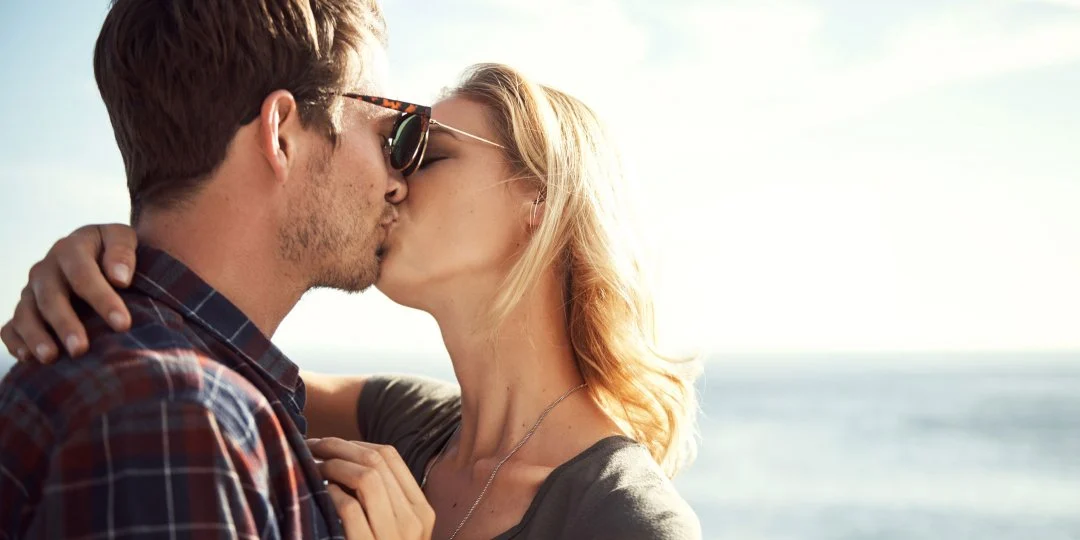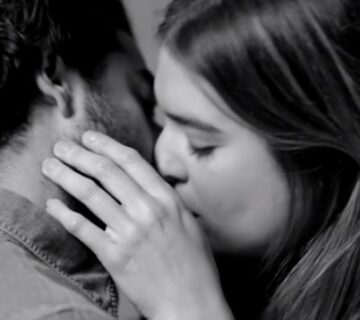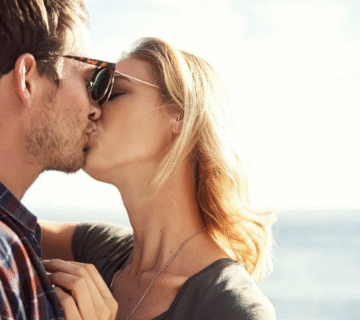A first kiss. It’s one of life’s iconic moments—imprinted so deeply in our memories that even decades later, many still recall who, where, and how it unfolded. But beyond the butterflies, racing hearts, and trepidation, your first kiss is a powerful event in biological, psychological, and evolutionary terms.
Why the First Kiss Is So Unforgettable
First kisses feel monumental not just because of cultural hype, but due to an astonishing cocktail of biochemical reactions set off in the brain and body. This sensory experience engages nearly all of your senses—touch, taste, scent, sound, and even vision—as well as tapping into ancient evolutionary instincts.
Most people remember their first meaningful kiss more vividly than almost any other romantic “first”. But why does a single touch of lips linger in our minds and hearts for so long?
What Happens in Your Brain During a First Kiss
The main event begins even before your lips meet. As you draw closer:
-
Adrenaline surges. Your sympathetic nervous system ramps up, making your heart race and your palms sweat—hence that “weak in the knees” sensation.
-
Anticipation of touch and scent. Kissing places you incredibly close to your partner, activating pheromonal and olfactory cues designed to help you unconsciously assess compatibility.
-
Nervous excitement. Dopamine builds—the same neurotransmitter triggered by addictive substances or a thrilling roller coaster.
When your lips finally meet, your brain enters overdrive:
-
Dopamine floods your system. This is known as the “pleasure hormone,” making you feel euphoric, giddy, and instantly wanting more.
-
Oxytocin is released. Called the “love hormone”, oxytocin deepens feelings of attachment, fosters feelings of affection, and cements the emotional memory. It’s the same hormone women experience during childbirth and breastfeeding, helping humans form strong bonds.
-
Serotonin levels skyrocket. This neurotransmitter is linked to mood and happiness, but in kissing, the effect is so pronounced it’s likened to the obsessive thoughts seen in new romance.
Kissing literally lights up the pleasure centers in your brain, creating a natural high remarkably similar to both a rush of drugs and the beginnings of falling in love.
Kissing: An Evolutionary and Genetic “Test Drive”
While love stories focus on the heart, the real magic is in your genes and senses. During a first kiss, your brain is sampling subtle chemical information—particularly through scent and taste.
The biological rationale? Researchers have discovered humans are naturally drawn to partners with different immune system genes (the MHC gene complex), detected partly by how their skin and breath smell. This unconscious “test” ensures that any future offspring have a robust, diverse immune system. That’s part of why a first kiss, even if everything else lines up, can be unexpectedly disappointing or electrifying.
*Saliva, too, contains chemical markers. Some scientists have found that “sloppy” kisses help your body unconsciously discern if your kisser could be a genetically compatible mate supporting healthy children.
The Role of the Senses: Why a First Kiss Feels So Intense
Your lips are incredibly sensitive—packed with over 100 times more nerve endings than your fingertips, and more than almost any other area of the body. These nerve receptors send a flood of data to your somatosensory cortex, making each touch, pressure, and temperature feel amplified.
-
Peripheral nerves become hyper-sensitive: Even a brush of fingertips or a breeze feels electrifying. This is why you might shiver, get goosebumps, or feel a full-body tingle.
-
Your sense of smell intensifies: The close proximity lets you “sample” your partner’s unique pheromones—subtle body chemicals that can influence attraction and arousal unconsciously.
-
Hearing and sight play a part: The pupil dilates, and many people instinctively close their eyes to amplify the other senses and tune out distractions.
Stress, Relaxation, and Health Benefits
Kissing—especially a first kiss—leads to immediate physiological benefits:
-
Stress hormone cortisol drops: Studies have shown that a single 15-minute kissing session can dramatically decrease stress and anxiety.
-
Improved mood and immune function: Those same feel-good chemicals released during a kiss boost your mood, help regulate immune response, and can even improve your health by decreasing cholesterol levels over time.
-
Potential for long-term relationship satisfaction: Research links frequent kissing to higher relationship happiness and commitment.
The Psychological Impact: Love, Memory, and Identity
First kisses are anchored so deeply in our emotional memory that people can often recall every detail decades later. Psychologists suggest that a positive first kiss contributes to identity, shapes romantic expectations, and even acts as a predictor of future relationship satisfaction and intimacy.
First kisses are also intertwined with personal growth—timing and desire reveal traits like independence, confidence, and willingness to take emotional risks.
Why Do Some First Kisses “Fail”?
Sometimes, the science just isn’t there. If your first kiss feels off, awkward, or leaves you flat, it could be:
-
Mismatched MHC genes or pheromone profiles.
-
Poor timing, nerves, or lack of comfort.
-
Differences in technique or expectation.
The good news? Chemistry can grow, and even a “meh” first kiss doesn’t doom a relationship. The science shows that connection, communication, and experience all play a role in improving your kissing (and chemistry) over time.
Proven Tips for a Memorable First Kiss
-
Fresh breath and soft lips: Biology says scent and texture matter!
-
Move slowly, make eye contact, and read your partner’s signals: Consent is sexy and sets the stage for all those good chemicals to flow.
-
Let yourself enjoy the “high”: The rush, the butterflies, and the full-body excitement are healthy and normal.
-
Don’t panic if nerves strike: Even adrenaline is part of the wiring that adds magic to your memory.
Read More: How to Kiss for the First Time: Step-by-Step Guide to a Memorable, Human First Kiss
Final Thoughts
A first kiss is much more than storybook romance or fleeting puppy love. The extraordinary science behind kissing blends genes, hormones, psychology, and centuries-old evolutionary instincts. Every racing heartbeat, tingling shiver, or wave of euphoria is nature’s way of helping you assess compatibility, build bonds, and truly connect. The next time your lips meet someone special for the first time, know that you’re not just making a memory—you’re part of one of humanity’s most meaningful, deeply wired rituals.





[…] Read More: The Science Behind the First Kiss: What Really Happens in Your Body and Mind […]